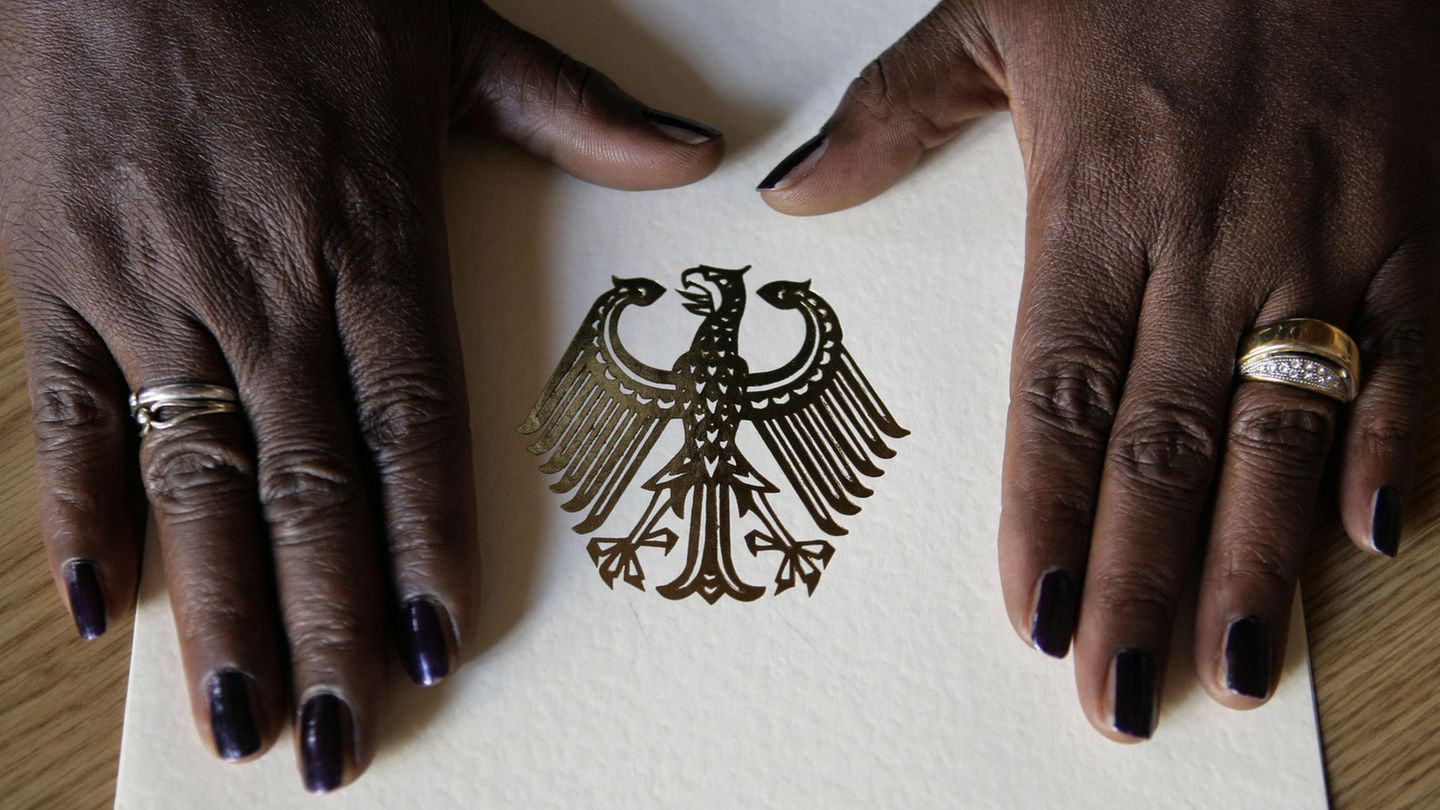Those who come to Germany should be naturalized faster in the future. This is what a draft by the Minister of the Interior envisages. The most important cornerstones at a glance.
The coalition has agreed on the main features of a new citizenship law. The draft bill published on Friday by the Federal Ministry of the Interior provides for a number of far-reaching changes: naturalization should be simplified and dual citizenship should be possible in principle. The naturalization of people who cannot support themselves or who have already committed criminal offenses in Germany should be made more difficult.
The draft by Federal Interior Minister Nancy Faeser (SPD) is the “final agreement” between the traffic light partners, coalition circles said to the AFP news agency. In the further parliamentary procedure and the association hearing, however, there could be minor changes.
Minister Faeser said on Friday: “We are completing the long overdue paradigm shift and allowing multiple nationalities.” With the reform, immigrants would no longer be forced to “give up part of their identity”. The Union, however, criticized the plans as “the wrong signal”.
The most important principles:
Shorter naturalization period
People from abroad who have been living legally in Germany for a long time should be able to become citizens more quickly. Until now, they could only apply for a German passport after eight years of residence at the earliest. In future, they should be able to apply for citizenship after five years – and in exceptional cases after three years if they have “special integration achievements”. This can be, for example, good language skills, voluntary work or very good performance at school or at work.
Dual citizenship becomes possible
So far, with a few exceptions, the principle has applied: Anyone who takes on German citizenship must give up their old citizenship. In future, multiple citizenship should be possible in principle. The draft points out that many immigrants have been reluctant to give up their old citizenship – also because of emotional ties to their country of origin or that of their parents.
German citizenship for those born in Germany
All children of foreign parents born in Germany should in future receive German citizenship without any further reservations if at least one parent has lived legally in Germany for more than five years. Previously, the deadline was eight years. In principle, children born in Germany can obtain and permanently retain German citizenship and the citizenship of their parents.
Relief for former guest workers
Special relief should apply to members of the so-called guest worker generation, who have often been living in Germany for decades. In the future, these older migrants should no longer have to take a written German test in order to be naturalized. Proof of oral language skills should suffice. They should also no longer have to take a written naturalization test. With these simplifications, the “lifetime achievement” of this older generation should be honored, according to the draft. They apply to people who came to the Federal Republic before June 1974.
information about criminal offences
The commitment to the free democratic basic order that has already been demanded is specified. The draft makes it clear that “anti-Semitic, racist, xenophobic or other acts motivated by inhumanity” are incompatible with the basic law’s guarantee of human dignity. The planned reform will introduce a new “transmission regulation”: The public prosecutor’s office must inform the naturalization authority on request whether an application has already been convicted of a relevant crime.
Union rejects draft
The draft bill now presented is a “final agreement” between the traffic light partners, as announced on Friday from coalition circles. In the further parliamentary procedure and the association hearing, however, there could be minor changes. The CDU/CSU strictly rejects the project. However, the support of the Union would not be needed if the law is drafted in such a way that it does not require the approval of the Bundesrat.
One-two pass has long been the norm
The draft puts the number of people living in Germany with foreign citizenship at the end of 2021 at around 10.7 million. Around 5.7 million of these have been in Germany for at least ten years. According to the template, the double passport has long since become the norm in practice in Germany: Of the people who were naturalized in 2021, 69 percent had at least one other citizenship.
Source: Stern
I have been working in the news industry for over 6 years, first as a reporter and now as an editor. I have covered politics extensively, and my work has appeared in major newspapers and online news outlets around the world. In addition to my writing, I also contribute regularly to 24 Hours World.




